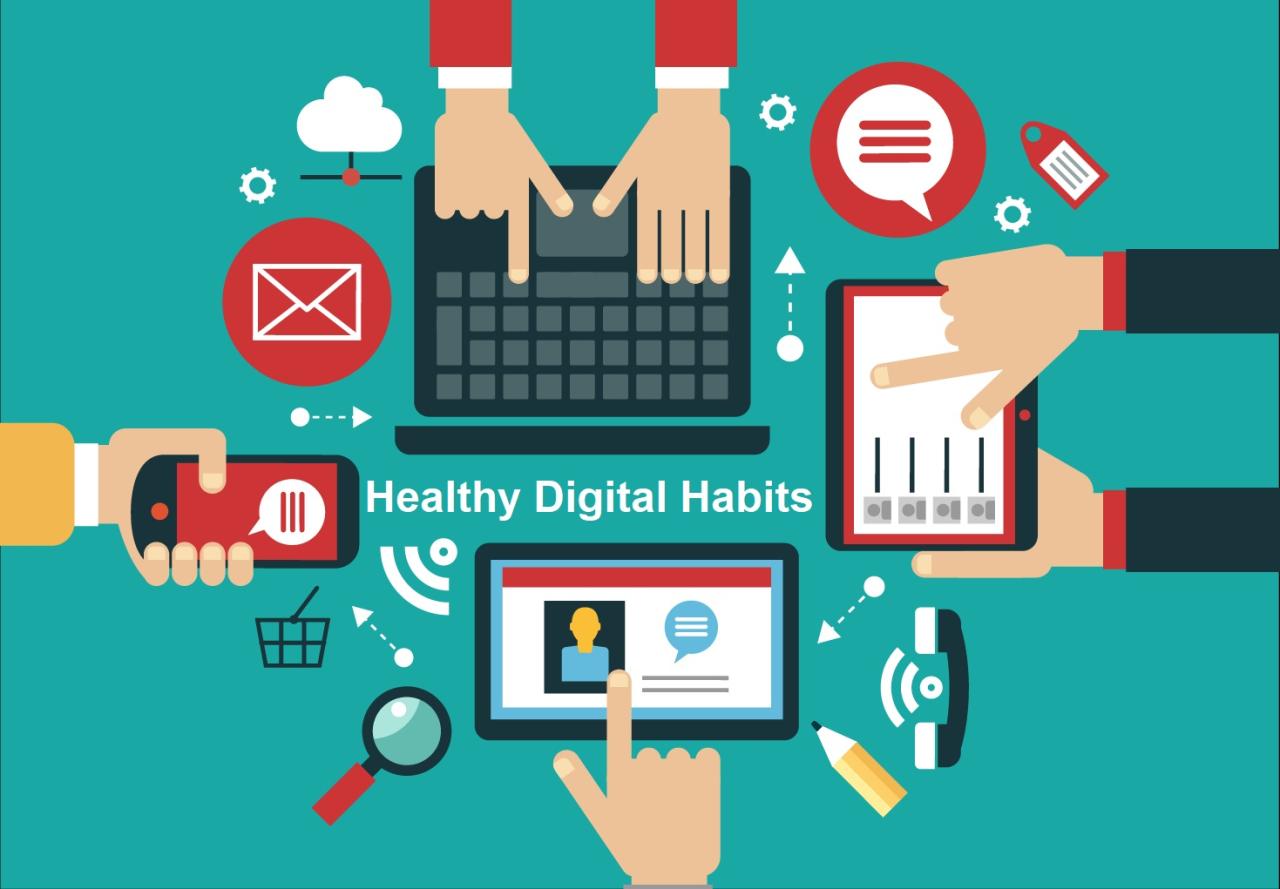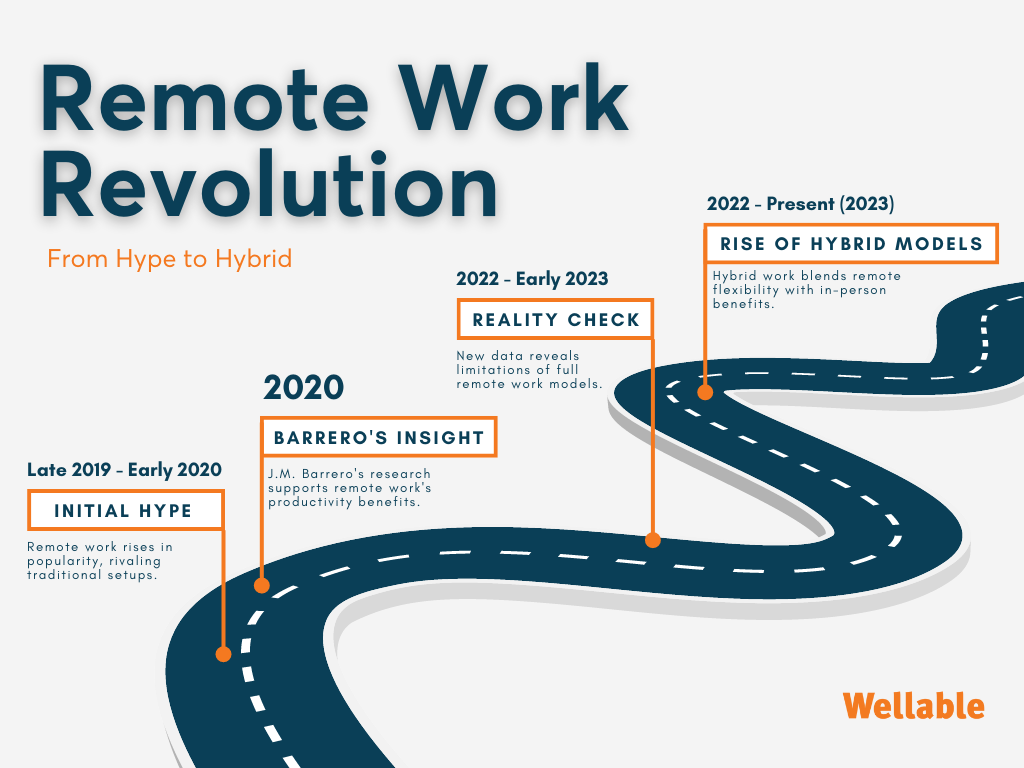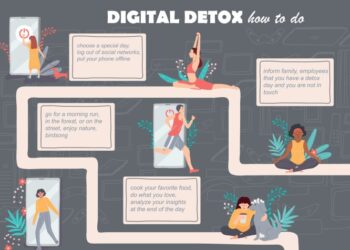In today's digital age, cultivating healthy habits is essential for overall well-being. From utilizing digital tools for health tracking to creating daily routines that prioritize mental and physical health, there are numerous ways technology can support a healthier lifestyle. This discussion delves into the impact of digital habits on living a healthier life, offering insights and tips for integrating these practices into your daily routine.
Digital Tools for Health Tracking
Keeping track of your health metrics is essential for maintaining a healthy lifestyle. Fortunately, there are various digital tools available to help individuals monitor their progress towards healthier living.
Popular Health Tracking Apps
- MyFitnessPal: This app allows users to track their food intake, exercise routines, and weight goals. It provides a comprehensive overview of daily calorie intake and expenditure.
- Fitbit: Fitbit offers a range of wearable devices that track physical activity, sleep patterns, heart rate, and more. The app provides detailed insights into overall health and fitness levels.
- Apple Health: Integrated with Apple devices, this app consolidates health data from various sources, including fitness apps, medical records, and wearable devices. It offers a holistic view of your health metrics.
- Samsung Health: Similar to Apple Health, Samsung Health collects and analyzes health data to provide personalized insights and recommendations for improving overall well-being.
- Google Fit: This app tracks physical activity, heart rate, and other health metrics. It also offers goal-setting features and integrates with various fitness apps and devices.
Creating Healthy Digital Routines
In today's digital age, incorporating healthy habits into our daily routines is essential for promoting overall well-being. By leveraging digital tools and technologies, we can enhance our mental and physical health. Let's explore some examples of digital habits that can help us lead healthier lives.
Setting Reminders for Hydration
- One effective digital habit to promote healthier living is setting reminders for hydration throughout the day.
- By using apps or smart devices to remind us to drink water regularly, we can stay hydrated and improve our overall health.
- Proper hydration is crucial for maintaining bodily functions, boosting energy levels, and enhancing cognitive performance.
Scheduling Digital Breaks
- Another important digital habit for healthier living is scheduling regular breaks from screens and devices.
- Continuous exposure to screens can lead to eye strain, fatigue, and mental exhaustion.
- By taking short breaks to disconnect from digital devices, we can reduce stress, improve focus, and protect our mental well-being.
Designing a Daily Digital Routine
- Create a digital routine that includes time for physical activity, mindfulness practices, and healthy meals.
- Allocate specific periods for work, relaxation, and social interactions to maintain a balanced lifestyle.
- Use digital tools like fitness apps, meditation guides, and meal planning platforms to support your daily routine.
Utilizing Wearable Technology

Wearable technology has revolutionized the way we approach fitness and health tracking. These devices, such as fitness trackers and smartwatches, offer a convenient and effective way to monitor our physical activity levels and overall well-being.
Benefits of Wearable Technology in Encouraging Physical Activity
- Wearable devices provide real-time feedback on our daily activity levels, encouraging us to move more and reach our fitness goals.
- They offer reminders to stand up, take a walk, or complete a certain number of steps, helping us stay active throughout the day.
- By tracking our progress and setting achievable goals, wearable technology motivates us to engage in regular exercise and lead a more active lifestyle.
Tracking Fitness Goals and Motivating Users
- Wearable devices allow users to set personalized fitness goals, such as daily step count, calorie burn, or active minutes, and track their progress over time.
- They provide insights into our sleep patterns, heart rate, and even stress levels, helping us make informed decisions to improve our overall health and well-being.
- By gamifying fitness routines and rewarding achievements, wearable technology keeps users engaged and motivated to maintain a healthy lifestyle.
Impact of Wearable Devices on Long-Term Health Habits
- Studies have shown that individuals who use wearable technology are more likely to engage in regular physical activity and adopt healthier habits in the long run.
- By promoting accountability and awareness of our daily habits, wearable devices empower us to make positive changes to our lifestyle and prioritize our health.
- The data collected by wearable devices can be shared with healthcare providers, enabling personalized recommendations and interventions to support long-term health goals.
Digital Resources for Mental Health
When it comes to taking care of our mental health, digital resources can play a significant role in providing support and tools for emotional well-being.
Mental Health Apps and Platforms
There are various mental health apps and platforms available that offer features to support emotional well-being. These resources can provide a range of tools and strategies to help individuals manage stress, anxiety, and other mental health concerns.
- Apps like Calm and Headspace offer guided meditation and mindfulness practices to promote relaxation and reduce stress.
- Platforms like TalkSpace provide online therapy sessions with licensed professionals, making mental health support more accessible.
- Apps such as MoodMission and Happify offer activities and exercises to improve mood and build resilience.
Stress Relief and Mindfulness Practices
Digital resources can offer a variety of stress relief techniques and mindfulness practices to help individuals cultivate a sense of calm and focus.
- Guided breathing exercises and relaxation techniques can be found on apps like Breathe2Relax and Stop, Breathe & Think.
- Mindfulness apps like Insight Timer and Mindfulness Coach provide tools for practicing mindfulness and staying present in the moment.
- Virtual reality (VR) relaxation apps can offer immersive experiences to promote relaxation and reduce stress levels.
Personalized Digital Toolkit for Stress Management
Creating a personalized digital toolkit for managing stress and improving mental health involves selecting resources that cater to individual needs and preferences.
- Customizing a selection of mental health apps based on specific goals, such as improving sleep, reducing anxiety, or enhancing self-care practices.
- Incorporating digital tools for tracking mood, stress levels, and daily activities to identify patterns and triggers that impact mental well-being.
- Utilizing wearable technology like smartwatches to monitor physiological indicators of stress and provide reminders for relaxation exercises.
Last Recap
Embracing digital habits that promote healthier living is more than just a trend—it's a lifestyle choice that can lead to long-term benefits. By incorporating these practices into your daily routine, you can take proactive steps towards improving your overall health and well-being.
Start today and experience the positive changes that digital habits can bring to your life.
Answers to Common Questions
How can digital tools help in tracking health metrics?
Digital tools offer a convenient way to monitor various health metrics such as physical activity, sleep patterns, and nutrition intake. By using these tools, individuals can gain valuable insights into their overall health status and make informed decisions to improve their well-being.
What are some examples of digital habits that promote healthier living?
Examples include setting reminders for hydration, scheduling regular physical activity breaks, and using meditation apps for stress relief. These digital habits can significantly impact your overall health and wellness.
How do wearable devices encourage physical activity?
Wearable technology can track steps taken, calories burned, and even monitor heart rate during exercise. By providing real-time feedback and goal setting features, wearables motivate users to stay active and achieve their fitness objectives.
What are some mental health resources available in the digital space?
There are various mental health apps and platforms that offer support for emotional well-being, stress management, and mindfulness practices. These resources can be valuable tools for improving mental health and overall quality of life.






